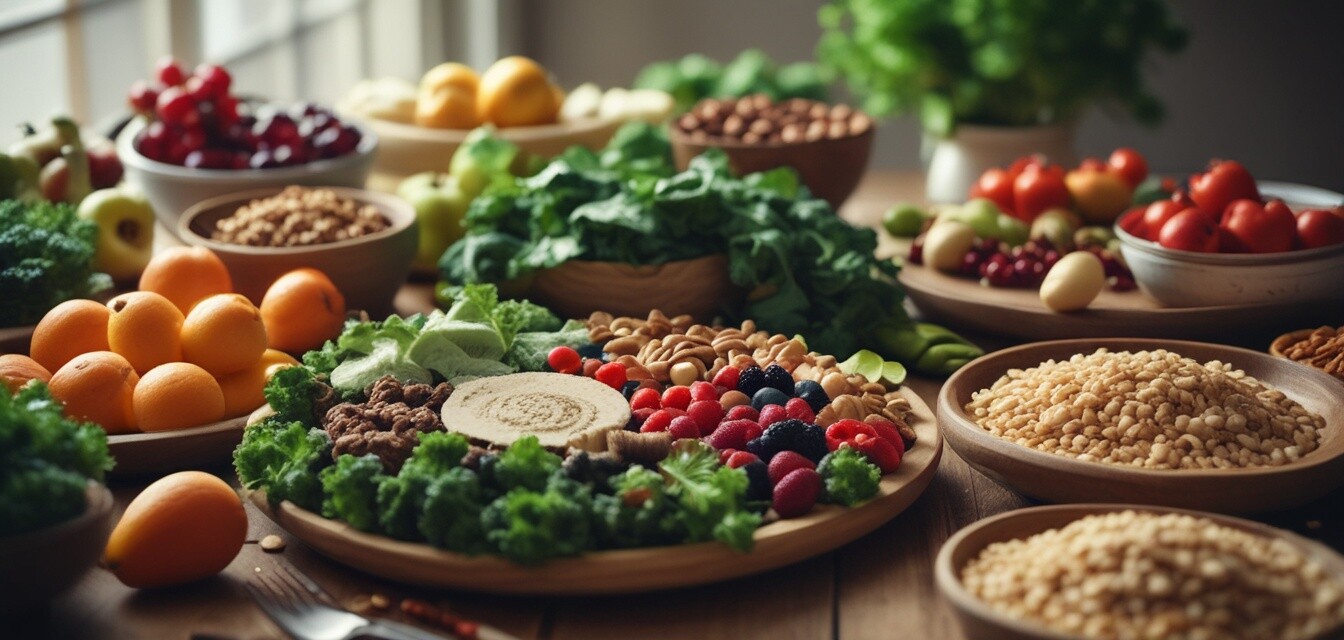
Tips for Pairing Prenatal Vitamins with Food for Better Absorption
Key Takeaways
- Certain foods can enhance the absorption of prenatal vitamins.
- Fat-soluble vitamins pair well with healthy fats.
- Combining specific nutrients can improve effectiveness.
- Timing your vitamin intake can play a role in absorption.
- Eat a balanced diet to support overall pregnancy health.
Taking prenatal vitamins is essential for expectant mothers, ensuring both their health and that of their developing babies. However, did you know that pairing these vitamins with the right foods can significantly enhance their absorption? In this article, we'll discuss several strategies for optimizing nutrient absorption through meal pairings. By following these tips, you can maximize the benefits of your prenatal vitamins and support a healthy pregnancy journey.
Understanding Nutrient Absorption
The body needs certain conditions to absorb vitamins and minerals effectively. Factors such as the type of vitamin, the medium it's consumed in, and the timing can all affect how well your body utilizes these important nutrients. Consuming prenatal vitamins with the right foods can create optimal conditions for absorption.
Types of Vitamins and Their Absorption
| Vitamin Type | Solubility | Best Pairing Foods |
|---|---|---|
| Vitamin A | Fat-soluble | Fish, dairy, nuts |
| Vitamin D | Fat-soluble | Eggs, avocado, olive oil |
| Vitamin E | Fat-soluble | Nuts, seeds, spinach |
| Vitamin C | Water-soluble | Citrus fruits, strawberries, bell peppers |
| Folic Acid | Water-soluble | Leafy greens, legumes, fortified cereals |
Foods to Enhance Prenatal Vitamin Absorption
Here are some food pairings that can significantly boost your prenatal vitamins’ effectiveness:
Fat-soluble Vitamins
Fat-soluble vitamins (A, D, E, K) absorb better when taken with dietary fats. Here are some healthy fat options:
- Avocados
- Olive oil
- Chia seeds
- Nuts and nut butters
Iron and Vitamin C
Taking iron-rich prenatal vitamins alongside vitamin C sources can improve iron absorption. Consider these combinations:
- Spinach salad (iron) topped with orange slices (vitamin C)
- Whole grain toast (iron) with a glass of fresh grapefruit juice (vitamin C)
Calcium and Magnesium
These minerals are vital for both the mother and baby. However, it's best to space out calcium supplements from iron, as high calcium can interfere with iron absorption. Some good sources include:
- Dairy products
- Leafy greens
- Legumes
Timing Your Intakes
The timing of when you take your prenatal vitamins can also affect absorption. Here are some tips:
- Take prenatal vitamins with a meal for better absorption.
- Avoid taking them with high-fiber meals or drinks, which can inhibit absorption.
- Set a routine by taking them at the same time each day to develop a habit.
Maintaining a Balanced Diet
While pairing foods with your prenatal vitamins is helpful, it's essential to maintain a balanced diet overall. Incorporating a variety of whole foods will ensure you’re getting a wide range of nutrients to support both you and your growing baby.
Sample Meal Plan for Pregnancy
| Meal | Nutrient-Rich Foods |
|---|---|
| Breakfast | Oatmeal topped with fresh fruits and a dollop of almond butter |
| Lunch | Quinoa salad with mixed greens, beans, avocado, and a vinaigrette dressing |
| Dinner | Baked salmon with steamed broccoli and brown rice |
| Snack | Greek yogurt with sliced strawberries or berries |
Conclusion
By understanding how to pair your prenatal vitamins with specific foods, you can maximize their absorption and effectiveness. Taking fat-soluble vitamins with healthy fats, pairing iron with vitamin C, and maintaining overall balanced nutrition are fantastic strategies to support your health during pregnancy. Don’t forget to check out our Healthy Pregnancy Tips category for more information on maintaining a healthy pregnancy journey.
Pros
- Enhances nutrient absorption.
- Supports overall health during pregnancy.
- Promotes healthy fetal development.
Cons
- Requires planning and understanding of nutrition.
- May need adjustments for individual dietary needs.
